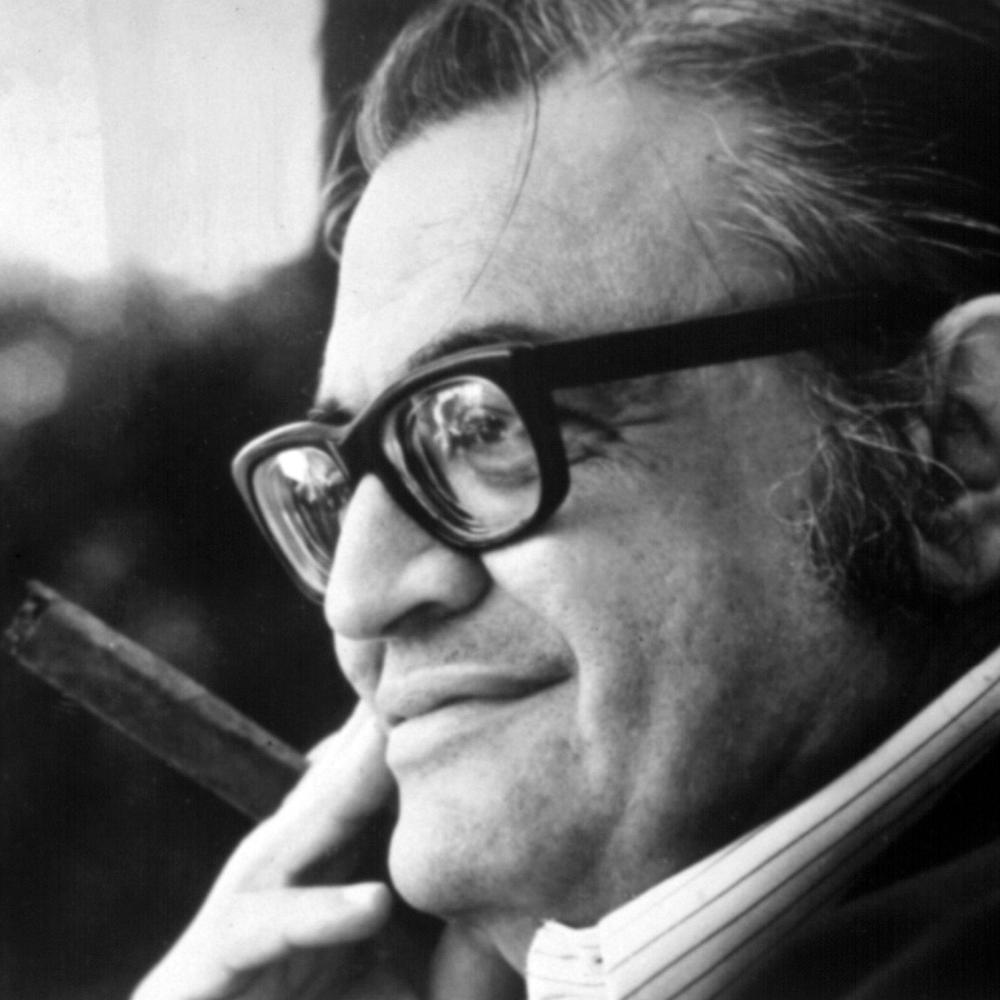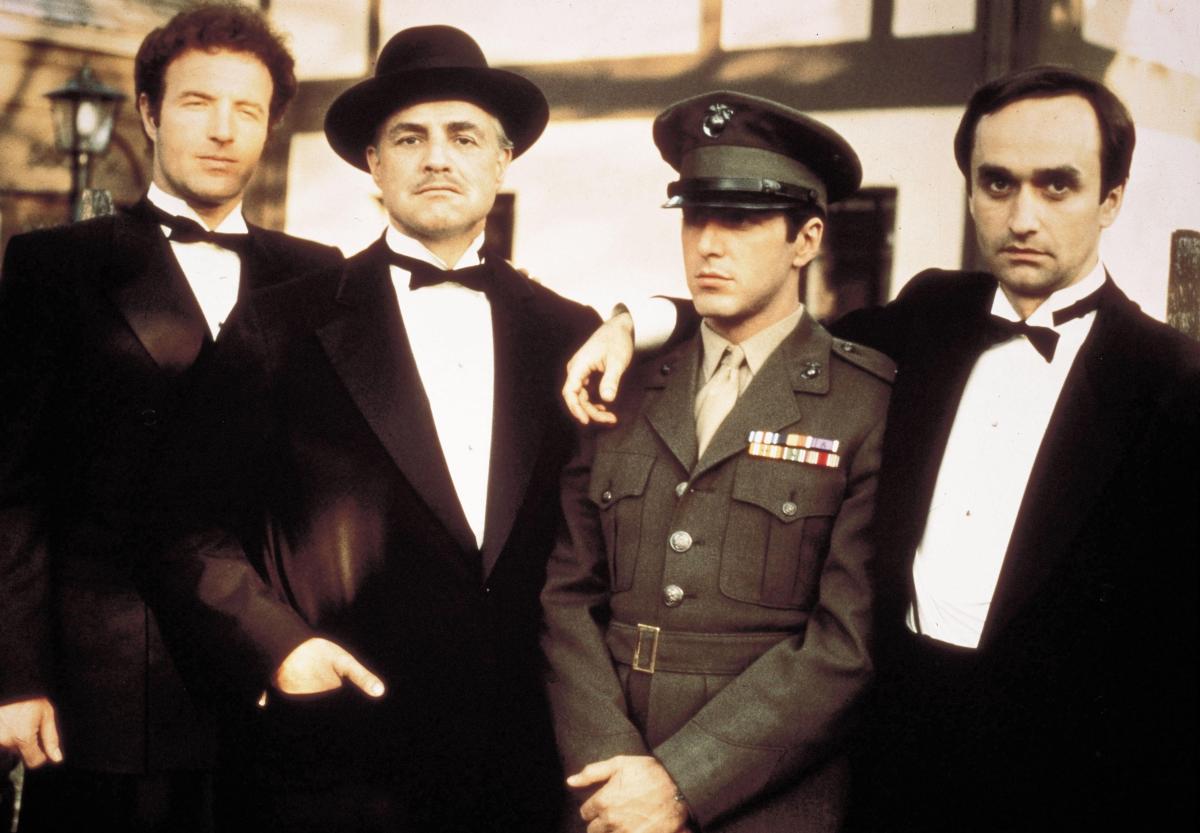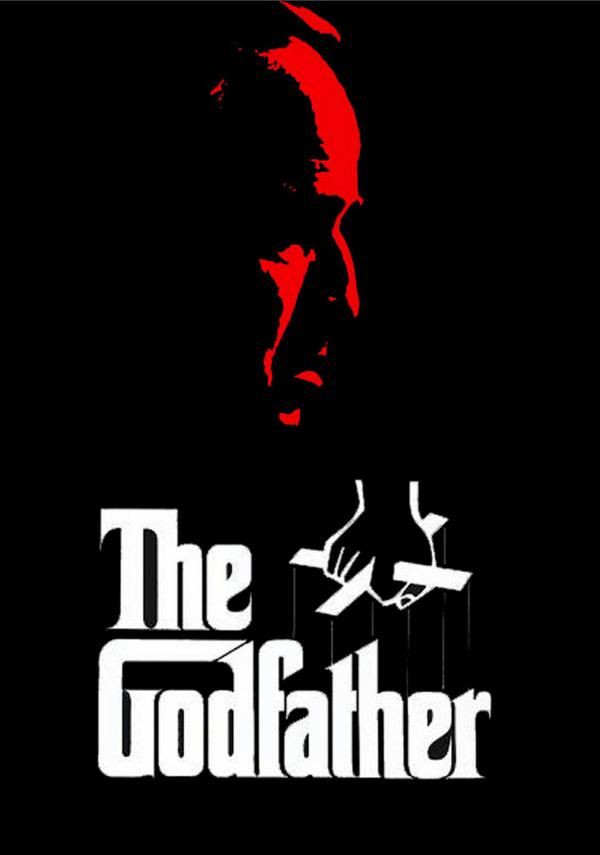In the various articles published to mark the fiftieth anniversary of The Godfather film, one man has been left in the shadows, the author Mario Puzo. This is odd, because he not only wrote the novel but was also, with director Francis Ford Coppola, co-scriptwriter for the film trilogy. It might also pass as the normal treatment doled out in Hollywood to literary figures as diverse as F. Scott Fitzgerald and Thomas Mann. Puzo himself accepted that it was not his film and reflected wryly that he came eighth in line of its makers.
The man deserves more credit, however, than he has received for a work that critics call mythic—the highest of postmodern praise. In 1997, two years before Puzo died, I did a transatlantic interview with him. I was a poorly paid lecturer in Italian with a fascination for all things Sicilian and was also an occasional contributor to the Edinburgh daily, The Scotsman, so I gladly accepted an invitation to talk to him. Nowadays, online interviews are routine, but then technology—or at least my technology—was primitive: a recorder taped onto a phone. The occasion was supposedly the publication of The Last Don, a novel intended to depict his experience of the film industry and Hollywood, but, seemingly to his surprise, the mafia had muscled its way into that book too. In his view, the ethics of cinema executives were not noticeably different from those of mafia bosses, even if they did not leave horses’ heads in the beds of their rivals.
Puzo was a surprising figure, whose aims as a writer did not fit facile expectations. In the first place, he insisted that his knowledge of the mafia came from research, not firsthand experience. His family was of Neapolitan, not Sicilian, origin and while Naples has had to struggle with its own organized crime syndicate, the camorra, its code differs in some respects from that of the mafia. Puzo agreed that he had “known in the neighborhood [in New York] someone you went to with problems, a godfather if you like,” but the story and the characters were invented. He did go to Sicily before the publication of his book The Sicilian (1984) to deepen his knowledge of the mafia, but this offered him no extra stimulus.
“I spent two weeks in Sicily doing research for the novel, but the country scared the hell out of me. The American consul wanted to give me a bodyguard, but I figured that if I kept moving from place to place they would never catch up with me. The villages were sunk in valleys surrounded by stone. It was like something out of Wuthering Heights.” This fear showed Puzo’s misconceptions about the mafia and its ways. As Puzo learned, mafia criminality does not include random thuggery, nor are they unduly interested in what appears about them in print. From the late 1950s, denunciations and exposés have tumbled from the presses, causing some excitement for a day or two, but they know it will soon die down and they can continue as before. Relations with politicians and judges are what count, and writers, especially novelists, are not worth bothering about. (In fact, The Godfather was read with pride by the mafia in both New York and Palermo.)
As the reference to Wuthering Heights implies, Puzo was more high-minded about his writing than anyone who associates him only with The Godfather might expect. At the outset of his career, he had, as he repeated to anyone who would listen, an aspiration to produce art. On this subject, he spoke in terms Oscar Wilde would have recognized, except that he had no intention of starving for that art. (Nor indeed had Wilde.) Puzo’s first two novels, The Dark Arena (1955) and The Fortunate Pilgrim (1965), attracted respectful, even enthusiastic, reviews and gave him the status of an emerging writer to watch, guaranteed a niche following, but the works failed to bring home the bacon. And he wanted the big bucks as well as the cachet of an artist.
He entertained no doubts on the value of these first ventures into fiction. “My first two books were very serious, and I didn’t care whether publishers or readers liked them.” He expatiated on this theme in a chapter of The Godfather Papers, a book published in 1972 on the back of his newly acquired fame and which carried the bashful subtitle and Other Confessions. He notes there that the New York Times called The Fortunate Pilgrim “a small classic,” and he added, “I even like the book myself and immodestly think of it as art.” Art is all very fine, but he ruefully records that the first book made him $3,500 and the second, $3,000. His stock may have been rising but his income was tumbling, not an unfamiliar dilemma in any genre of art throughout history.
Puzo had aimed high but when, armed with glowing reviews, he returned to his publisher to request an advance for the next novel he wanted to write, he was greeted warmly, treated politely, and shown the door empty-handed. There was a mafia boss in The Fortunate Pilgrim, and one of the editors suggested, mildly and diplomatically, that had that element been more prominent, the author’s request might have been more benevolently received. Instead Puzo, having “believed in art for forty-five years,” found himself an outsider.
In the meantime, he was able to eke out a decent living, churning out adventure stories and editing articles for journals, activities whose return did little to diminish the accumulation of mountainous debts or to support his wife and family in the style to which they wished to become accustomed. He gave up trying to please small magazines and changed course. “With The Godfather I was very conscious of writing for an audience,” he explained to me. “I subordinated character to action as a deliberate device on my part to make the audience read it.” In The Godfather Papers, he put the matter more disarmingly: “I have written three novels. The Godfather is not as good as the preceding two; I wrote it to make money.”
Somewhere inside this unexpectedly complex man and in what it is only fair to call his aesthetics, there were doubts and hesitations common to dramatists and novelists whose reputations may be altogether higher than his but who have tussled in their hearts with the conflicting demands of action and character, or indeed of money-making versus admission to the upper artistic pantheon. Dr. Johnson, with a bluntness that is typical of the man, declared that “no man but a blockhead ever wrote, except for money” and he left it to others to deplore or approve compromises made on that money trail.
Puzo never totally resolved the dilemma of cash versus art, but maybe it is irresolvable. When I asked him what in retrospect he really thought about The Godfather, he threw aside the artistic mask and donned another that had the colorful flamboyance of a Damon Runyon character. “Let me tell you about writers,” he began, and I imagined him stabbing the air with a large cigar as he spat out the words. “The more money a book makes, the better they like it.” He quickly pulled back from such crude materialism. “It has been translated into pretty well every language and has been constantly in print for over 25 years. It was not written with the painstaking care of the first two books, but looking back, I think it was a very good book.”
There could now follow an abstract debate on worldly and other-worldly goals, on being true to oneself, on the demands of conscience, and the words “selling out” might be employed, but let it go. While maintaining our respect for Harold Bloom and George Steiner and their exacting standards, we have learned greater respect for popular art than was allowed by other generations with their strict demarcations between high and low culture. “Popular culture” is no longer a term of disdain, so the award of the Nobel Prize for literature to such disparate figures as Bob Dylan and Dario Fo was greeted as proof of changing standards. The once-heated debate expressed as a discussion of the merits of Dylan’s lyrics versus the sonnets of John Keats was always a sterile one.
Of course, the saga of the Corleone family is better known through the cinematic rather than the prose version, but Puzo was—as the bard put it in the dedication to his sonnets—the “onlie begetter” of the family’s history and might have been surprised at the esteem that his story now commands. It is distinguished by a strong narrative drive, careful description, a vividness of scene, depth of character—at least among the men—and is imbued with a sense of fate that makes the Corleone clan an American equivalent of Aeschylus’s house of Atreus. Michael Corleone initially wants out, but family and tradition outweigh his individual desire, leaving him trapped.
The book, and even more so the films, offer what has been recognized as a sinister, reverse vision of the American dream of the rise from immigrant poverty to status, comfort, and wealth. It portrays power, its use and misuse, in terms Machiavelli would have recognized, and indeed the Florentine would have nodded approvingly at the separation of morals from business. It is one of the more disconcerting signs of success that the novel has become concealed reading for aspiring politicians and business leaders who would use a cheese wire only to slice parmesan and would faint at the sight of bloodshed, but who recognize the rough and tumble of the quest for success.
The overriding difficulty can be termed the Iago dilemma: How does one write about a villain without endowing him with an unintended allure? But this problem is hardly restricted to crime fiction. The violence cannot fail to be troubling, but can it be avoided in a work on Cosa Nostra? On this subject, Puzo spoke out with no subtleties or qualifications, oddly enough echoing the views expressed by Wilde in his introduction to The Picture of Dorian Gray.
Puzo said, “I am a novelist and not a sociologist. The whole question of whether a book is moral or not, to me, is nonsense. I am not going to write a book in which I condemn my characters from a moral point of view. While he is writing a book, a novelist has to cherish all his characters. I show the terrible things done by mafia people. The reader must decide.” Viewers, as well as readers, have decided.



